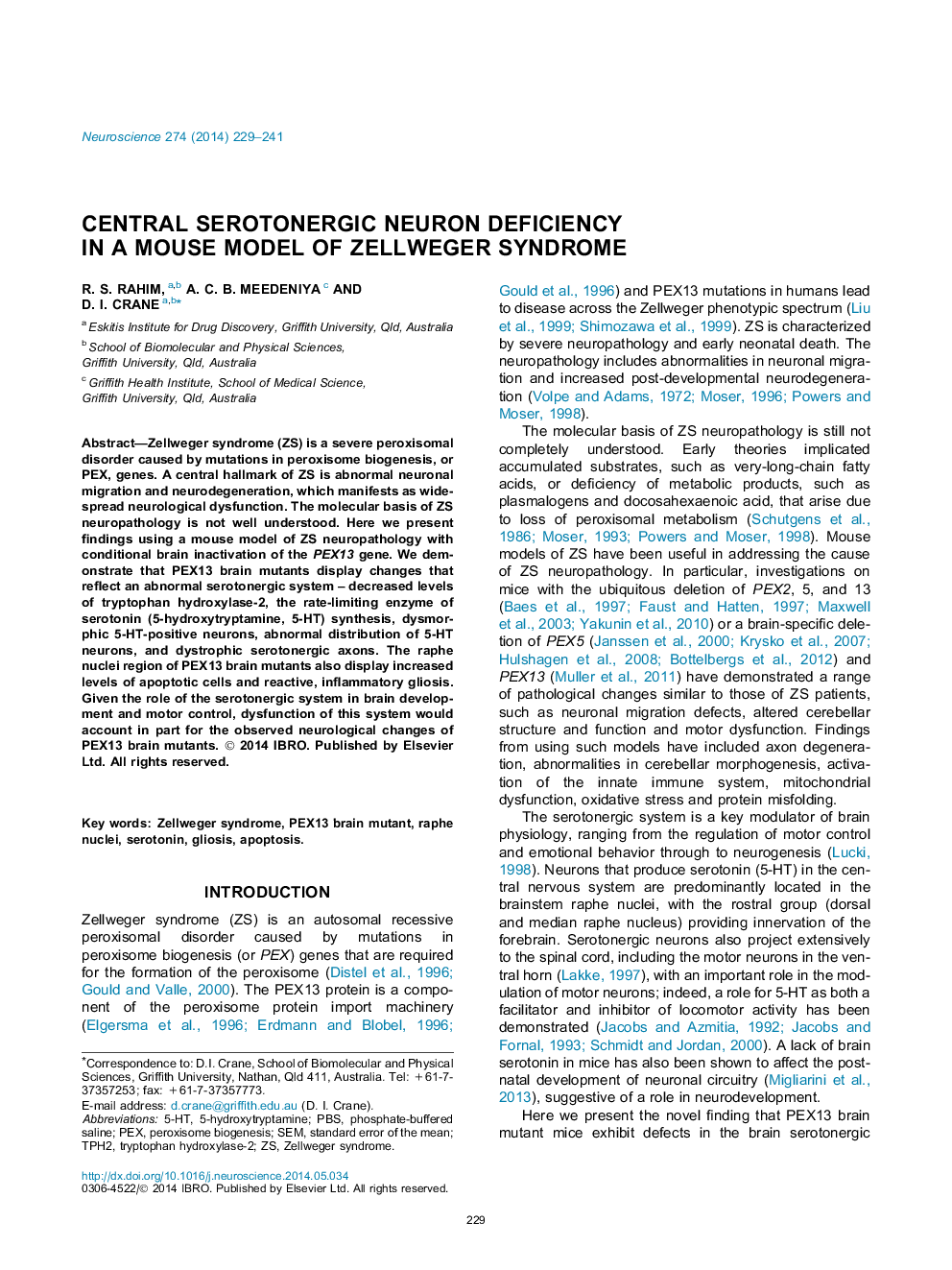| کد مقاله | کد نشریه | سال انتشار | مقاله انگلیسی | نسخه تمام متن |
|---|---|---|---|---|
| 4337636 | 1614802 | 2014 | 13 صفحه PDF | دانلود رایگان |
• Abnormal serotonergic system in brains of mice with conditional loss of PEX13.
• Decreased levels of TPH2, the rate-limiting enzyme of serotonin synthesis.
• Dysmorphic 5-HT neurons, abnormal distribution, dystrophic serotonergic fibers.
• Increased levels of apoptotic cells and reactive, inflammatory gliosis.
Zellweger syndrome (ZS) is a severe peroxisomal disorder caused by mutations in peroxisome biogenesis, or PEX, genes. A central hallmark of ZS is abnormal neuronal migration and neurodegeneration, which manifests as widespread neurological dysfunction. The molecular basis of ZS neuropathology is not well understood. Here we present findings using a mouse model of ZS neuropathology with conditional brain inactivation of the PEX13 gene. We demonstrate that PEX13 brain mutants display changes that reflect an abnormal serotonergic system – decreased levels of tryptophan hydroxylase-2, the rate-limiting enzyme of serotonin (5-hydroxytryptamine, 5-HT) synthesis, dysmorphic 5-HT-positive neurons, abnormal distribution of 5-HT neurons, and dystrophic serotonergic axons. The raphe nuclei region of PEX13 brain mutants also display increased levels of apoptotic cells and reactive, inflammatory gliosis. Given the role of the serotonergic system in brain development and motor control, dysfunction of this system would account in part for the observed neurological changes of PEX13 brain mutants.
Journal: Neuroscience - Volume 274, 22 August 2014, Pages 229–241
